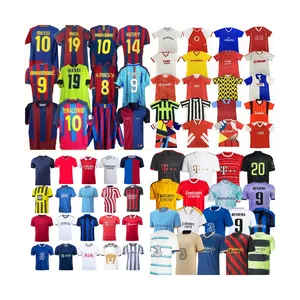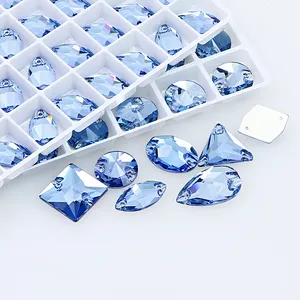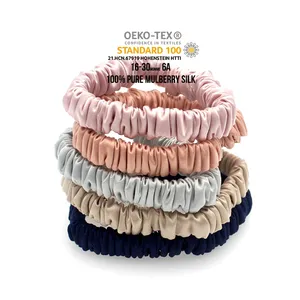Sektörünüzde popüler






Ucuz fiyat standart hassas Q345b Q235 genişliği 1000mm-5000mm 5mm kalınlığı karbon çelik levha bina kullanımı ile
₺18.139,52 - ₺20.193,05
Minimum Sipariş Miktarı: 1 Ton







Liange Steel Manufacture JIS G3302 Z12 Z18 Z22 Z25 Z27 Galvanized Steel Coil for Sale
₺18,14 - ₺19,86
Minimum Sipariş Miktarı: 10000 Kilogram
Parça başına nakliye: ₺366,22







LianGe sıcak satış galvanizli spcc sac demir rulo fiyat dx51d z200 galvalume çelik bobin
₺18.824,03 - ₺20.535,30
Minimum Sipariş Miktarı: 1 Ton







Astm a36 5mm karbon çelik levha soğuk haddelenmiş yüksek karbonlu çelik 3mm ms sac demir metal kg başına rekabetçi fiyat ile tedarikçiler
₺17.078,53 - ₺18.789,80
Minimum Sipariş Miktarı: 1 Ton
Parça başına nakliye: ₺581,15







S355J0W s355jÇELİK TABAKA EN10025-5 S235J0WP S355J0WP Steel 5kweatherayrışma çelik tedarikçileri
₺22.246,58 - ₺32.514,23
Minimum Sipariş Miktarı: 6 Ton
Parça başına nakliye: ₺95,49







Çinko çelik çatı levhası şirketleri hindistan'da
₺23.957,85 - ₺27.380,40
Minimum Sipariş Miktarı: 25 Ton






Din En 10346 gerginlik Hdg galvanizli bobin karbon çelik haddeleme 4.5cm genişlik hindistan
₺17,80 - ₺20,88
Minimum Sipariş Miktarı: 2000 Kilogram






Düşük fiyat ve yüksek ile en çok satan üreticiler. Hindistan'da galvanizli çelik levha fiyat
₺15.401,48 - ₺20.193,05
Minimum Sipariş Miktarı: 5 Ton


GP bobin hindistan yapılan hint üretici şirketi tarafından satılık üst sınıf çelik Metal ile galvanizli
₺876,18
Minimum Sipariş Miktarı: 1000 Adet






Hindistan'da ucuz fiyat elektro metal 28 soğuk haddelenmiş galvanizli çelik levha fiyat
₺18.824,03 - ₺21.562,07
Minimum Sipariş Miktarı: 1 Ton






Düşük fiyat ve yüksek ile en çok satan üreticiler. Hindistan'da galvanizli çelik levha fiyat
₺15.401,48 - ₺20.193,05
Minimum Sipariş Miktarı: 5 Ton






Düşük fiyat ve yüksek ile en çok satan üreticiler. Hindistan'da galvanizli çelik levha fiyat
₺15.401,48 - ₺20.193,05
Minimum Sipariş Miktarı: 5 Ton
İlgili Aramalar:
çelik şirketleri brezilyaçelik şirketleri avrupaçelik şirketleri suudi arabistançelik şirketleri bize tedarikçisiçelik şirketleri almanyalistesi çelik şirketleriüst 10 çelik şirketleriüst 10 çelik şirketleri tedarikçisijaponya çelik şirketleriapo çelikçelik şirketlerilistesi çelik şirketleri baeçelik şirketleri abdçelik şirketleri çinu.s. çelik şirketleri






Hindistan'da düşük fiyat ve yüksek galvanizli çelik levha fiyat ile en çok satan üreticiler
₺15.401,48 - ₺20.193,05
Minimum Sipariş Miktarı: 5 Ton






Düşük fiyat ve yüksek ile en çok satan üreticiler. Hindistan'da galvanizli çelik levha fiyat
₺15.401,48 - ₺20.193,05
Minimum Sipariş Miktarı: 5 Ton






Düşük fiyat ve yüksek ile en çok satan üreticiler. Hindistan'da galvanizli çelik levha fiyat
₺15.401,48 - ₺20.193,05
Minimum Sipariş Miktarı: 5 Ton






Üreticiler düşük fiyatlar sıcak daldırma demir Gi galvanizli çelik yapraklar fiyat ile yüksek kalite sağlamak
₺17.112,75 - ₺20.535,30
Minimum Sipariş Miktarı: 1 Ton




ASTM a36 sıcak haddelenmiş kontrol plaka S235jr çelik levha 4320 tekne hafif karbon çelik levha demir soğuk haddelenmiş çelik ihracat
₺19.166,28
Minimum Sipariş Miktarı: 5 Metrik Ton






Hindistan'da Ppgi bobini çatı teneke levha GÜNEŞ PANELI üretici özelleştirilmiş soğuk haddelenmiş çelik levha ASTM renk kaplı HG 5 ton
₺16.428,24 - ₺21.219,81
Minimum Sipariş Miktarı: 5 Ton






BIS sertifikası ile hindistan pazarı için ISO ile PPGI çelik bobin fabrikası PPGI bobini
₺16.428,24 - ₺19.166,28
Minimum Sipariş Miktarı: 50 Ton






Kare ayak hindistan filipinler Galvalume oluklu levha kağıt levha nakliye şişe fiyatı
₺17,46 - ₺18,49
Minimum Sipariş Miktarı: 2000 Kilogram






Hindistan'da 0.15mm çatı levha makinesi fiyat kenya galvanizli çelik hurda çatı levhaları fiyat çinko çatı levhası fiyat
₺12.971,47 - ₺17.078,53
Minimum Sipariş Miktarı: 25 Ton






PPGL PPGI kiremit/ön boyalı çinko çatı levha/galvanizli oluklu çelik çatı plakası
₺16.428,24 - ₺21.219,81
Minimum Sipariş Miktarı: 5 Ton






Yeni sıcak daldırma kaplı galvanizli çelik levha bobinler düşük fiyata ikincil kalite
₺17,80 - ₺20,88
Minimum Sipariş Miktarı: 2000 Kilogram






Çelik malzeme Prehab ev renk kaplı boyalı galvanizli PPGI çelik bobin için oluklu çelik çatı kaplama levhası
₺16.428,24 - ₺18.824,03
Minimum Sipariş Miktarı: 5 Ton






Gp başbakan sıcak Dippedg çinko kaplama Ppgi Ppgi Ppgi galvanizli çelik bobin 178
₺17,80 - ₺20,88
Minimum Sipariş Miktarı: 2000 Kilogram






Hindistan'da ayakta dikiş çatı paneli metal çatı rulo şekillendirme makinesi
₺421.281,68
Minimum Sipariş Miktarı: 1 Takım






KSD503 hidrolik makine sıkma DX68 kullanılan hidrolik hortum sıkma makinesi hindistan'da satılık
₺20.501,08 - ₺61.571,68
Minimum Sipariş Miktarı: 1 Takım






GF42 oto çelik otomatik demir Cnc üzengi bükme makinesi Shanghai fiyat satış için 4-40 hindistan Tops
₺20.124,60
Minimum Sipariş Miktarı: 1 Takım






Yedek parça kulak askısı KAYNAK MAKINESİ kulaklar döngü otomatik ultrasonik 3Ply maskesi makinesi fiyat
₺102.676,50 - ₺154.014,75
Minimum Sipariş Miktarı: 1 Takım






Çelik Metal yapma makinesi için kesme makineleri lazer kesim zihinsel lazer kesim makineleri fiyat satış için hindistan'da 2000w 3000w 60
₺342.220,78 - ₺513.382,50
Minimum Sipariş Miktarı: 1 Takım






Altın kaplama Metal çatal bıçak kaşık seti el yapımı sofra paslanmaz çelik sofra takımı çatal bıçak kaşık seti cazip fiyat hindistan
₺256,70 - ₺294,34
Minimum Sipariş Miktarı: 10 Takım






25/38/50/63/75 küpeşte paslanmaz çelik boru ve boru bükücü makine CNC bükme makinesi fiyat hindistan
₺18.139,52 - ₺26.011,38
Minimum Sipariş Miktarı: 1 Takım






XM Mini paslanmaz çelik Metal Fiber lazer kaynak kesme 1000W 1500W 2000W hafiflik el kaynak tabancası hindistan'da
₺97.884,93 - ₺99.253,95
Minimum Sipariş Miktarı: 1 Takım






En kaliteli çelik içi boş boru bükme makinesi 38 boru bükücü yaygın olarak kullanılan boru bükme makinesi
₺11.978,93 - ₺15.401,48
Minimum Sipariş Miktarı: 1 Takım






Fabrika yeni tasarım cnc router makine 1300*2500mm kapı yapımı için sıcak satış hindistan ve bangladeş
₺123.211,80 - ₺191.662,80
Minimum Sipariş Miktarı: 1 Takım






Knudson çatı ayakta dikiş makinesi üreticileri
₺273.804,00 - ₺342.255,00
Minimum Sipariş Miktarı: 1 Takım
Parça başına nakliye: ₺972,35






Hindistan'da yüksek kalite 201 202 301 304 304L 321 316 316L 2 inç paslanmaz çelik boru
₺39.359,33 - ₺54.760,80
Minimum Sipariş Miktarı: 5 Ton

Gıda ekipmanları şirketi özelleştirilmiş paslanmaz çelik Campbon özelleştirilmiş ticari tek süt makinesi YX-01 gıda makinesi
₺34,23
Minimum Sipariş Miktarı: 1 Kutu






Çatı paneli adım kiremit rulo şekillendirme makinesi çatı ve duvar levhası rulo makinesi fiyat çift katmanlı çelik filipinler hindistan
₺147.169,65 - ₺171.127,50
Minimum Sipariş Miktarı: 1 Takım






Tam otomatik Metal çelik levha kabartma makinesi alüminyum levha kabartma desen makinesi Metal kabartma hindistan sıcak ürün
₺1.095.216,00 - ₺1.232.118,00
Minimum Sipariş Miktarı: 1 Takım
En iyi kategoriler
çelik şirketleri hindistan hakkında
Alibaba.com 128609 çelik şirketleri hindistan ürünü sunuyor. gb, jis ve din gibi size yönelik çok çeşitli çelik şirketleri hindistan seçenekleri bulunmaktadır. siyah, gümüş ve kırmızı çelik şirketleri hindistan arasından ve ayrıca






















